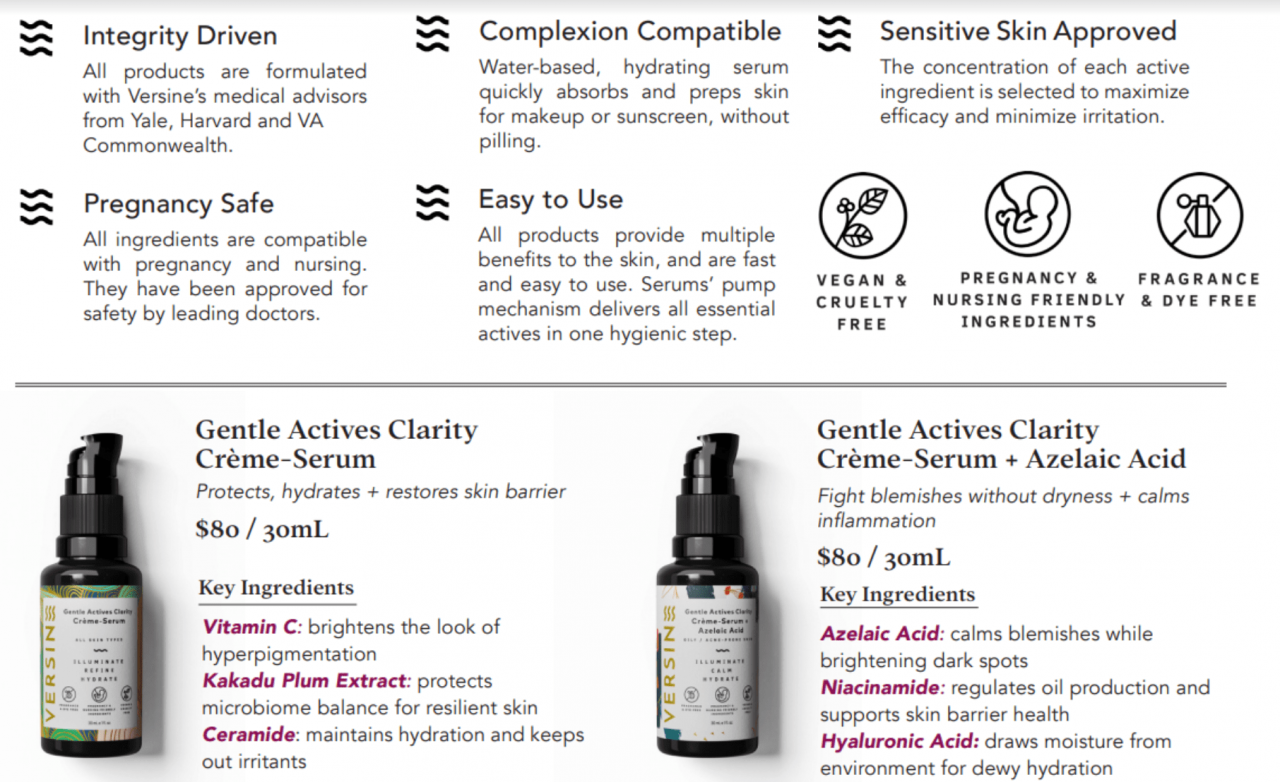Embark on a skincare journey tailored specifically for oily skin, where we delve into the depths of its causes, explore effective routines, and unveil the secrets to achieving a balanced and radiant complexion. Skincare para piel grasa takes center stage, guiding you through a comprehensive understanding of this skin type and empowering you with practical solutions.
Delve into the diverse types of oily skin, their unique characteristics, and the contributing factors that influence their appearance. Discover a step-by-step skincare routine designed to combat excess oil production, featuring product recommendations and expert insights. Explore the key ingredients that work wonders for oily skin, understanding their mechanisms and benefits.
Types of Oily Skin
Oily skin is a common skin type that is characterized by excess sebum production. Sebum is a natural oil that helps to protect the skin and keep it hydrated. However, when the skin produces too much sebum, it can lead to a number of problems, including acne, blackheads, and whiteheads.
There are several different types of oily skin, each with its own unique causes and characteristics.
Genetic Oily Skin
Genetic oily skin is a type of oily skin that is caused by genetics. This type of oily skin is typically characterized by large pores and a shiny appearance. It is often difficult to control, as it is caused by the body’s natural production of sebum.
Hormonal Oily Skin, Skincare para piel grasa
Hormonal oily skin is a type of oily skin that is caused by hormonal changes. This type of oily skin is typically seen in teenagers and young adults, as their hormones are fluctuating. It can also be seen in women who are pregnant or menopausal.
Environmental Oily Skin
Environmental oily skin is a type of oily skin that is caused by environmental factors, such as pollution and humidity. This type of oily skin is typically seen in people who live in urban areas or who spend a lot of time outdoors.
Skincare Routine for Oily Skin
Oily skin requires a tailored skincare routine to manage excess oil production and maintain a healthy complexion. Here’s a step-by-step guide to help you create an effective skincare regimen for oily skin:
Cleansing
Cleansing twice a day, morning and night, is crucial for removing excess oil, dirt, and makeup. Opt for a gentle, oil-free cleanser that won’t strip your skin of its natural oils. Consider using a salicylic acid-based cleanser to help exfoliate and unclog pores.
Toning
After cleansing, apply a toner to balance the skin’s pH levels and further remove impurities. Choose an alcohol-free toner that contains ingredients like witch hazel or tea tree oil, which have astringent properties to help control oil production.
Exfoliating
Exfoliation is key for oily skin as it helps remove dead skin cells and unclog pores. However, over-exfoliation can irritate the skin, so aim to exfoliate once or twice a week. Use a gentle scrub with small, rounded particles to avoid micro-tears.
Moisturizing
Contrary to popular belief, oily skin still needs moisture. Choose a lightweight, oil-free moisturizer that won’t clog pores. Look for products containing hyaluronic acid or ceramides to hydrate the skin without adding shine.
Sunscreen
Sun protection is essential for all skin types, including oily skin. Choose a broad-spectrum sunscreen with an SPF of 30 or higher that is non-comedogenic and won’t clog pores.
Serums
Serums can provide additional benefits for oily skin. Consider using a serum containing niacinamide to help regulate oil production and reduce inflammation. Retinol can also be beneficial for oily skin as it helps unclog pores and improve skin texture.
Ingredients for Oily Skin
Oily skin can be a frustrating problem, but there are a number of ingredients that can help to control excess oil and improve the appearance of your skin. These ingredients work by absorbing excess oil, reducing inflammation, and improving skin texture.
For those seeking professional-grade skincare solutions, 302 professional skincare delivers exceptional results. Their advanced formulations and innovative technologies cater to the unique needs of different skin types, providing targeted treatments that transform your complexion.
Salicylic Acid
- Salicylic acid is a beta-hydroxy acid (BHA) that is effective at exfoliating the skin and removing dead skin cells. This can help to unclog pores and reduce the appearance of blackheads and whiteheads.
- Salicylic acid also has anti-inflammatory properties, which can help to soothe irritated skin and reduce redness.
Benzoyl Peroxide
- Benzoyl peroxide is a powerful antibacterial agent that is effective at killing the bacteria that can cause acne.
- It is also a keratolytic, which means that it helps to break down the bonds between dead skin cells, making it easier for them to be shed.
Glycolic Acid
- Glycolic acid is an alpha-hydroxy acid (AHA) that is effective at exfoliating the skin and removing dead skin cells.
- This can help to unclog pores and reduce the appearance of blackheads and whiteheads.
- Glycolic acid also has humectant properties, which means that it helps to draw moisture into the skin.
Niacinamide
- Niacinamide is a form of vitamin B3 that has a number of benefits for oily skin.
- It helps to regulate oil production, reduce inflammation, and improve skin texture.
- Niacinamide is also a powerful antioxidant, which can help to protect the skin from damage caused by free radicals.
Tea Tree Oil
- Tea tree oil is an essential oil that has antibacterial and anti-inflammatory properties.
- It can help to kill the bacteria that can cause acne and reduce the appearance of blemishes.
- Tea tree oil is also a good source of antioxidants, which can help to protect the skin from damage caused by free radicals.
Lifestyle Factors Affecting Oily Skin: Skincare Para Piel Grasa
The skin’s natural oil production can be influenced by our lifestyle choices. Understanding how diet, stress, and sleep impact oily skin can help us make informed decisions to manage it effectively.
Diet
A balanced diet rich in fruits, vegetables, and whole grains can provide essential nutrients that support healthy skin. Conversely, a diet high in processed foods, sugary drinks, and unhealthy fats can contribute to inflammation and excess oil production.
If you’re looking to give your skincare routine a boost, consider incorporating skincare minis into your regimen. These travel-sized products are perfect for trying out new products or taking your favorites on the go. Whether you’re looking for a gentle cleanser, a hydrating serum, or a targeted treatment, there’s a hexylresorcinol skincare mini that’s right for you.
And if you’re struggling with hyperpigmentation, korean skincare hyperpigmentation products can help to brighten and even out your skin tone. For a more professional approach, 302 professional skincare offers a range of products that are used by dermatologists and estheticians alike.
- Reduce sugary drinks and processed foods:These foods can spike insulin levels, leading to increased oil production.
- Increase fruits and vegetables:Antioxidants in fruits and vegetables help protect the skin from damage and reduce inflammation.
- Limit unhealthy fats:Saturated and trans fats can clog pores and worsen oiliness.
Stress
Chronic stress can trigger the release of hormones like cortisol, which can stimulate oil glands. Finding healthy ways to manage stress can help reduce oil production.
- Exercise regularly:Physical activity releases endorphins, which have mood-boosting effects and can help reduce stress.
- Get enough sleep:Aim for 7-9 hours of quality sleep each night to help regulate stress hormones.
- Practice relaxation techniques:Yoga, meditation, or deep breathing exercises can help calm the mind and reduce stress levels.
Sleep
When we sleep, our skin repairs and regenerates itself. Lack of sleep can disrupt this process, leading to increased oil production and skin problems.
- Aim for 7-9 hours of sleep:Sufficient sleep allows the skin to rest and restore itself.
- Establish a regular sleep schedule:Going to bed and waking up at approximately the same time each day can help regulate the body’s natural sleep-wake cycle.
- Create a relaxing bedtime routine:Dim the lights, take a warm bath, or read a book before bed to promote relaxation and better sleep.
Tips for Managing Oily Skin
Managing oily skin can be a challenge, but there are effective ways to control excess oil production and maintain a healthy complexion. Here are some practical tips and techniques to help you manage oily skin effectively.
Regular cleansing is essential for removing excess oil and impurities from the skin. Use a gentle, oil-free cleanser twice a day to wash your face. Avoid harsh scrubs or soaps, as these can irritate the skin and stimulate oil production.
Indulge in the luxurious world of skincare with skincare minis , the perfect way to experiment with new products without committing to full-size bottles. From serums packed with potent ingredients like hexylresorcinol skincare to innovative formulas designed to combat korean skincare hyperpigmentation , these mini marvels offer a glimpse into the latest skincare trends.
Blotting
Blotting is a quick and easy way to absorb excess oil throughout the day. Use blotting papers or a clean tissue to gently press on oily areas of your face. Avoid rubbing or wiping, as this can spread oil around and irritate the skin.
Using Oil-Absorbing Products
Oil-absorbing products can help to control excess oil production and keep your skin looking matte. Look for products that contain ingredients like salicylic acid, benzoyl peroxide, or tea tree oil, which have antibacterial and oil-absorbing properties.
Avoiding Harsh Treatments
Avoid using harsh treatments or over-drying products on your skin. This can strip your skin of its natural oils and cause it to produce even more oil to compensate. Instead, opt for gentle, oil-free products that are designed for oily skin.
Regular Facials and Professional Skincare Treatments
Regular facials and professional skincare treatments can help to deep clean your skin, remove excess oil, and improve its overall health. A dermatologist or esthetician can recommend the best treatments for your skin type and concerns.
Final Conclusion
As we conclude our exploration of skincare para piel grasa, remember that managing oily skin is an ongoing journey that requires consistency and a tailored approach. Embrace the tips and techniques discussed, and don’t hesitate to consult with skincare professionals for personalized guidance.
By understanding your skin’s needs and implementing effective strategies, you can achieve a healthy, balanced, and radiant complexion.
FAQ Summary
What are the common causes of oily skin?
Genetics, hormonal imbalances, and environmental factors such as humidity and pollution can all contribute to oily skin.
How often should I cleanse my oily skin?
Twice a day, morning and night, using a gentle cleanser designed for oily skin.
Can I use a moisturizer if I have oily skin?
Yes, it’s essential to use a lightweight, oil-free moisturizer to hydrate your skin without adding excess oil.





Leave a Reply